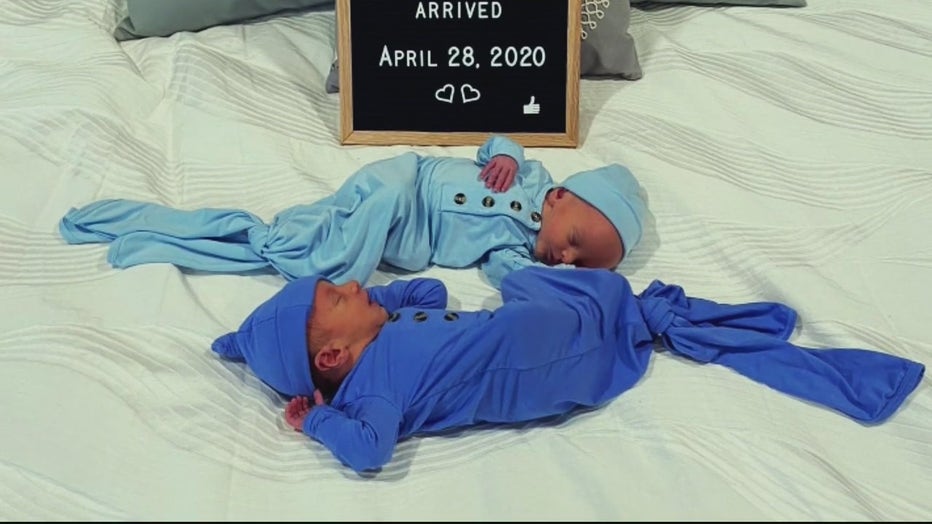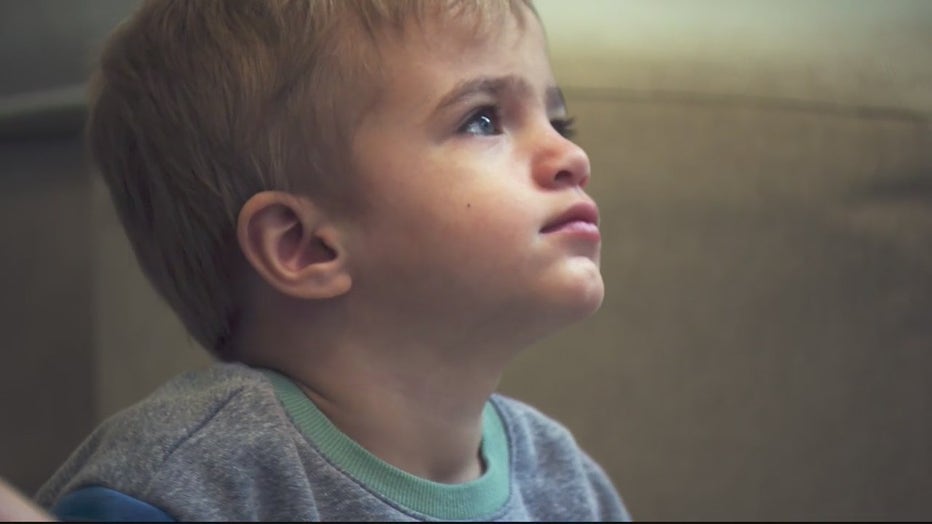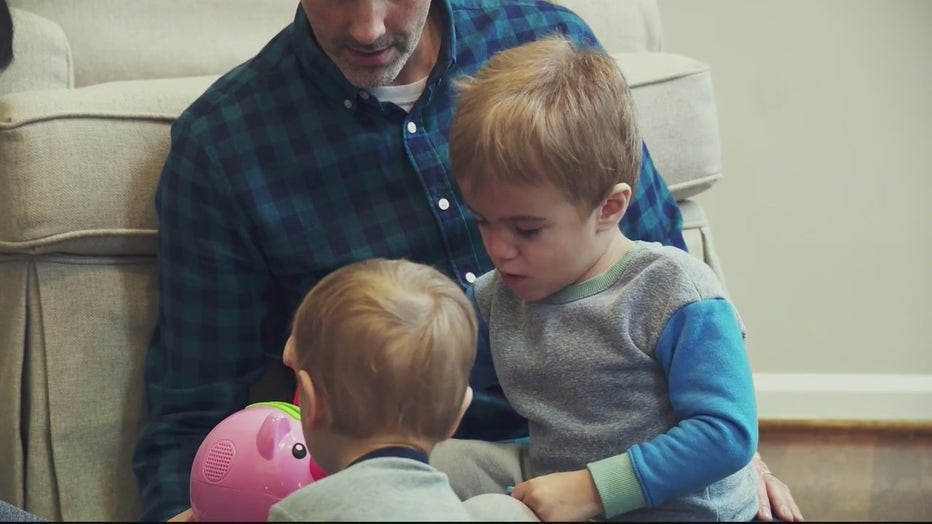Parents' persistence leads to discovery of son's rare neurodegenerative genetic disorder
Family works to raise awareness of rare Sanfilippo syndrome after son's diagnosis
A Metro Detroit couple noticed that one of their twin boys wasn't advancing as much as his brother. After some research and raising concerns to doctors repeatedly, he finally underwent genetic testing and was diagnosed with Sanfilippo syndrome, a neurodegenerative genetic disorder.
COMMERCE TOWNSHIP, Mich. (FOX 2) - Two-and-a-half-year-old twins Ben and Jack Negele came into the world during a very scary and uncertain time.
"They were born April 2020; that was right at the height of everything there was a period which I didn’t know I was going to be there for their births," their father David Negele said.
The Covid-19 pandemic had been declared six weeks earlier.

Somehow, first-time parents Amber and David made it through. They stayed safe and healthy while they doted on their new baby boys
"They’ve been completely different from the day they were born. Benny’s always been the goofy, rambunctious, wants to rough you up brother. Jack’s the one who is more reserved, sweetheart," David said.
Anyone who has twins will tell you, it’s nearly impossible not to compare the two. When Ben was learning to do more and more things, advancing faster than Jack, Amber and David started to wonder if something might be wrong."
"About a year ago I just started putting in his facial, so he’s got really thick eyebrows, which none of us have," Amber said. "His nose is a little wider. Just actual facial features and it’s like you’re going down a rabbit hole."

Jack
During those countless Google searches, Amber learned about something called Sanfilippo syndrome, a rare neurodegenerative genetic disorder. Those with the disorder lose their ability to do everything they’ve learned to do -- everyday things like walking and talking.
Doctors thought it was very unlikely that Jack was suffering from this rare disorder.
The toddler was fitted for ear tubes, as some thought perhaps he was suffering from hearing loss. He saw a gastroenterologist, a cardiologist, and a neurologist, and he was even tested for autism.
Nearly a year later there was still no diagnosis, but Amber and David refused to give up.
"I kept pushing and pushing, and our pediatrician was willing to put in the orders - even as I was concerned she said, 'We’ll do these if this will make you happy, but I don’t see a reason for it.'"
Jack finally underwent genetic testing in October of this year. A few weeks later, a phone call came from a genetics counselor with the results.
"She just said, 'I don’t know if you’re familiar with Sanfilippo syndrome - but your son’s positive and it’s type A.' I was at work and I just kind of fell because I knew everything about it because it’s been on my mind for almost a year and that was the one thing, please God don’t let that be it," Amber said.
Amber called David after learning the results.
"I’ll never forget it, I was at work as well she texted me and said, 'I need you to come home,'" he said. "I knew we were waiting on tests. In my mind I knew what it was but I just hoped it was something else."
Children with Sanfilippo syndrome are born with a genetic defect -- a change in their DNA that causes their bodies to lack a necessary enzyme. Without that enzyme they are unable to break down heparan sulfate, a natural cellular waste, and their brains become clogged with toxic levels. The typical life expectancy is between 10 and 20 years.
"That whole week I guess we were grieving and mourning a child that’s right here, just knowing that the future we saw isn’t going to look the way we thought," Amber said.
All the things this Commerce Township couple imagined for their boys suddenly changed.
"Play sports together, grow up together, be each other's best men in their weddings - just all the things we had thought, you know when we had twins, was going be the case," David.
About a week after the diagnosis the Negeles met with doctors and were surprised to find out there’s not much anyone could do for their son.

"It was just basically there’s no cure for this, go home and love your son, which is just like they gave up on him before we even had a shot to fight for him," Amber said.
With the way things stand now, Jack will lose all the cognitive skills he has learned in his short life.
"It’s like you have enough time to fall in love with this child, watch him walk and talk and then you have to watch it slowly be taken away. It just seems like a nightmare," Amber said. "Right now we have at least have the opportunity where he still says I love you, still says mama, dada. I make sure to record it because I don’t know the last day he will be able to say those things."
Now as active members of the Cure Sanfilippo Foundation, Amber and David are connecting with other families and sharing their painful story in hopes of teaching others about this rare medical condition. They hope that by raising awareness, they’ll be able to raise more money to help pay for lifesaving medical research, so Jack can grow up and grow old with his brother.
"Now we’re just trying to pray that something comes along, gene therapy, a cure, something," Amber said.
Learn more and donate to the Cure Sanfilippo Foundation here. You can also learn more about Jack here.

